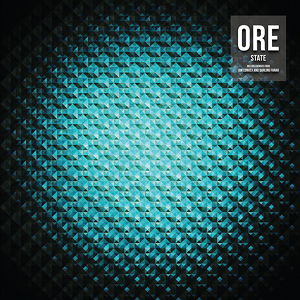Ore State
London producer Ore belongs to all the relevant online networking portals, but there’s scant information […]

London producer Ore belongs to all the relevant online networking portals, but there’s scant information to be found about him on any of them. State is his debut EP, and comes courtesy of Civil Music, a somewhat loose label that has previously released dynamic records by the likes of Darling Farah, Pixelord, and Débruit. State sits well with these artists’ hybrid, transatlantic takes on various styles of dance music, hitting an undefinable—if eminently floor-friendly and uptempo—midpoint between house, techno, electro, and UK bass.
Unfortunately, it also represents an increasingly ubiquitous sort of plasticized Frankenstein approach to constructing tracks. If Ore is not using Ableton, he is doing an excellent job at reproducing the program’s ability to dull with hyperactivity. “Four Pins” has a scuffed, angular, almost militant aggression that puts one in mind of Skudge, which is to say its groove is just fine on its own. But as the producer throws in all manner of accoutrements, the track ends up losing a decent amount of its force. Rumbling rollers “Cafe Torrefies” and “Nolita” push the pace even harder. Both lean towards Szare, and, subtly, bassline house, but they’re similarly stifled; it is as though Ore is constantly second-guessing himself. “Rise,” meanwhile, is comparatively sparse, led by dubby organ stabs and a tough, bumpy, rimshot-led swing, and it’s offered up for remixes by Jon Convex and Darling Farah. The former producer’s take applies a build-and-release formula, as the gloopy chords that anchor the first half are replaced by a thick, searing squarewave and frantic breaks in the second. It is Darling Farah, however, who truly impresses. Utilizing the spatial awareness that marked his debut LP, the producer simply lets a brisk, tom-led rhythm play out while he drapes ghostly, sweeping pads on top. Neither as soporific as the dub techno its signifiers hint at, nor as overworked as most of the EP’s other tracks, it’s exemplary of how far restraint can take a composition.

